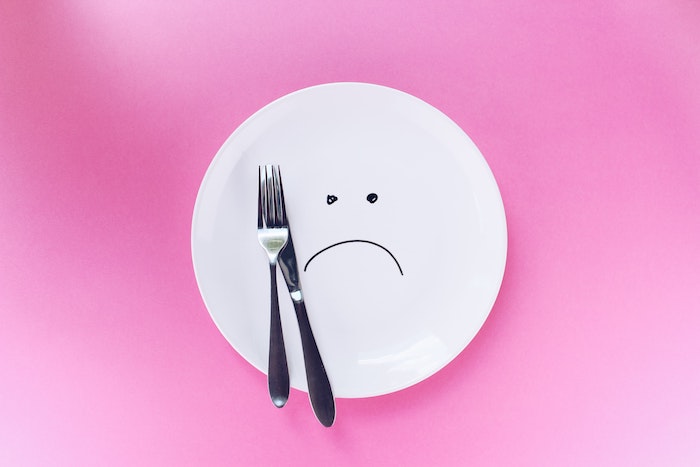Still Hungry After a Meal? Here's Why (And What to Do About It)

In our fitness-focused world, you probably understand things like calories and the need for exercise. You may even dabble in things like intermittent fasting and carnivore diets to lose weight and lead a healthier life.
However, you probably don’t quite understand why, exactly, you feel hungry. This can be particularly frustrating when you’re dieting, as the last thing you need is to feel hungry just after you ate.
The best way to cut down on hunger after a meal is to understand how your body responds to certain foods and fill it with nutritious whole foods.
Here’s why you feel hungry after a meal…

I. Hormones
Hunger is caused by a hormonal response that begins in the stomach. When the stomach is nearly empty, it starts to produce ghrelin. Ghrelin is known as the hunger hormone, as it floods your bloodstream and triggers the hypothalamus to produce feelings of hunger.
After you’ve eaten, your white, adipose fat tissue releases a counter hormone called leptin. Leptin regulates your weight in the long term and acts by mediating your hypothalamus’ response to ghrelin and hunger.
If leptin and ghrelin were a perfect system, far fewer people would gain excess weight and struggle with obesity. However, when you gain excess weight, your body tries to regulate itself by producing more leptin.
Unfortunately, you may find that this self-regulation isn’t particularly effective. This is because the hypothalamus becomes less sensitive to leptin when you’re carrying excess weight, while ghrelin production continues to trigger a hunger signal.
That leaves you suspended in a loop of weight gain, as your long-term response to leptin isn’t enough to counter the production of ghrelin.
II. Behavior
Hunger is controlled by hormones, but your behavior also plays a key role in setting your “normal” response to food and feelings of hunger. For example, you might be experiencing excessive hunger due to behaviors like hedonic eating, emotional eating, or even sleep deprivation.
You could also be experiencing excessive hunger if your diet consists of processed foods. Processed foods are high in fast-burning energy sources like sugar, fat, and salt.
When eating heavily processed foods, you might even start to feel hungry again during your meal — hardly an ideal system.
Unfortunately, your body loves these foods (in the short term) as they provide a quick burst of energy. Over time, your body can get used to eating fatty or sugary foods and demands them throughout the day.
It’s also worth pointing out that hunger can be related to mental health issues and conditions like depression. Sometimes depression can cause a sudden loss of appetite, and antidepressants can overstimulate your body’s response to hunger.
Additionally, sleep deprivation can increase your ghrelin levels and lead to obesity in the long term.
How You Can Reduce Feelings of Hunger

I. Replace “Unhealthy” Foods with Healthy Diet
Before rushing into a crash diet, you should step back and consider why you feel hungry.
If you are dramatically underweight or are losing weight at a rapid pace, your body’s cry for more food should be met. Underfeeding yourself isn’t healthy and can cause physical and mental health conditions like anorexia and dementia.
If you decide that you need to reduce your food intake to live a healthier life, try to start by replacing processed foods with whole foods.
While a sustainable caloric deficit is the most important factor in healthy weight loss, the kind of food you eat also plays a role in keeping hunger at bay.
In particular, try to eat more foods that are high in fiber and/or protein. That’s because foods like fish, oatmeal, and potatoes are much more satiating than pizzas, ice cream, and candy.
Unfortunately, replacing “unhealthy” foods with healthy ones is difficult at first, as your body is essentially addicted to sugar and fats.
So, start slowly and add something you like to your diet. For most people, this might involve swapping sugary cereals for oatmeal or replacing candy with snacks like popcorn.
II. Regular Exercise
Food isn’t the only thing that regulates hunger. Exercise and activity levels play a massive role in your body’s response to food and help you maintain a healthy weight.
Research shows that some forms of aerobic exercise can decrease feelings of hunger and allows you to exist in a “short-term negative energy balance”. This is particularly helpful if you’re looking to lose weight, but are having a hard time regulating your feelings of hunger throughout the day.
Of course, finding time for regular exercise can be tricky if you live a busy life. The key to forming a hunger-busting exercise habit is to make regular physical activity part of your everyday routine. So, carve time out for exercise from your weekly schedule and consider joining groups or sports to help keep you accountable.
If you’re struggling to find time in your schedule for exercise, you might want to consider creating a home gym. A good home gym doesn’t have to set you back thousands of dollars and can be built in underutilized spaces like garages or extra bedrooms.
Even simple equipment like a yoga mat or a jump rope is more than enough to get you started on a regular exercise habit. A good home gym saves you time and cuts out any excuses you may have for avoiding the gym.
Conclusion
Eating three hearty meals a day should more than satiate you. So, if you’re finding yourself reaching for sugary snacks after dinner, take a step back and reconsider your holistic health.
Remember, you may be able to cut down on hunger pangs by getting more sleep, exercising more frequently, or eating more whole foods that are both satiating and nutritious.






















![[node:title]](/sites/default/files/styles/video_thumbnail_bottom/public/guy_with_unshaven_skin_face_young_skin_care_routine_beard.jpg?itok=qE9bZ04g)